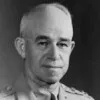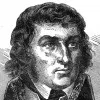A soldier is a yahoo hired to kill in cold blood as many of his own species, who have never offended him, as possibly he can.
Jonathan Swift (1667-1745) English writer and churchman
Gulliver’s Travels, Part 4 “Voyage to the Land of the Houyhnhnms,” ch. 5 (1726)
(Source)
Following a long litany of the causes of wars in Europe, the number of such causes leading to the "trade of a soldier" being held "the most honourable of all others," for the above reason.
Quotations about:
army
Note not all quotations have been tagged, so Search may find additional quotes on this topic.
The great armies, accumulated to provide security and preserve the peace, carried the nations to war by their own weight.
A. J. P. Taylor (1906-1990) British historian, journalist, broadcaster [Alan John Percivale Taylor]
The First World War: A Illustrated History, ch. 1 (1963)
(Source)
The mass of men serve the State thus, not as men mainly, but as machines, with their bodies. They are the standing army, and the militia, gaolers, constables, posse comitatus, etc. In most cases there is no free exercise whatever of the judgment or of the moral sense; but they put themselves on a level with wood and earth and stones; and wooden men can perhaps be manufactured that will serve the purpose as well. Such command no more respect than men of straw or a lump of dirt. They have the same sort of worth only as horses and dogs. Yet such as these even are commonly esteemed good citizens.
Henry David Thoreau (1817-1862) American philosopher and writer
Essay (1849-05), “Resistance to Civil Government [On the Duty of Civil Disobedience],” Æsthetic Papers, No. 1, Article 10
(Source)
Based on an 1848 lecture at the Concord Lyceum.
Down the Trojans came like a squall of brawling gale-winds
blasting down with the Father’s thunder, loosed on earth
and a superhuman uproar bursts as they pound the heavy seas,
the giant breakers seething, battle lines of them roaring,
shoulders rearing, exploding foam, waves in the vanguard,
waves rolling in from the rear. So on the Trojans came,
waves in the vanguard, waves from the rear, closing,
bronze men glittering, following captains, closing.[οἳ δ᾽ ἴσαν ἀργαλέων ἀνέμων ἀτάλαντοι ἀέλλῃ,
ἥ ῥά θ᾽ ὑπὸ βροντῆς πατρὸς Διὸς εἶσι πέδον δέ,
θεσπεσίῳ δ᾽ ὁμάδῳ ἁλὶ μίσγεται, ἐν δέ τε πολλὰ
κύματα παφλάζοντα πολυφλοίσβοιο θαλάσσης
κυρτὰ φαληριόωντα, πρὸ μέν τ᾽ ἄλλ᾽, αὐτὰρ ἐπ᾽ ἄλλα:
800ὣς Τρῶες πρὸ μὲν ἄλλοι ἀρηρότες, αὐτὰρ ἐπ᾽ ἄλλοι,
χαλκῷ μαρμαίροντες ἅμ᾽ ἡγεμόνεσσιν ἕποντο.]Homer (fl. 7th-8th C. BC) Greek author
The Iliad [Ἰλιάς], Book 13, l. 795ff (13.795) (c. 750 BC) [tr. Fagles (1990), l. 920ff]
(Source)
Original Greek. Alternate translations:And as the floods of troubled air to pitchy storms increase
That after thunder sweeps the fields, and ravish up the seas,
Encount’ring with abhorréd roars, when the engrosséd waves
Boil into foam, and endlessly one after other raves;
So rank’d and guarded th’ Ilians march’d; some now, more now, and then
More upon more, in shining steel; now captains, then their men.
[tr. Chapman (1611), l. 711ff]As when from gloomy clouds a whirlwind springs,
That bears Jove’s thunder on its dreadful wings,
Wide o’er the blasted fields the tempest sweeps;
Then, gather’d, settles on the hoary deeps;
The afflicted deeps tumultuous mix and roar;
The waves behind impel the waves before,
Wide rolling, foaming high, and tumbling to the shore:
Thus rank on rank, the thick battalions throng,
Chief urged on chief, and man drove man along:
Far o'er the plains in dreadful order bright,
The brazen arms reflect a beamy light.
[tr. Pope (1715-20)]The march of these at once, was as the sound
Of mighty winds from deep-hung thunder-clouds
Descending; clamorous the blast and wild
With ocean mingles; many a billow, then,
Upridged rides turbulent the sounding flood,
Foam-crested billow after billow driven,
So moved the host of Troy, rank after rank
Behind their Chiefs, all dazzling bright in arms.
[tr. Cowper (1791), l. 964ff]But they marched like unto the blast of boisterous winds, which rushes down to the plain, urged by the thunder of father Jove, and with a dreadful tumult is mingled with the ocean; and in it rise many boiling billows of the much-resounding sea, swollen, whitened with foam, first indeed some and then others following. So the Trojans, first indeed some in battle array, and then others glittering in brass, followed along with their leaders.
[tr. Buckley (1860)]Onward they dash’d, impetuous as the rush
Of the fierce whirlwind, which with lightning charg’d,
From Father Jove sweeps downward o’er the plain:
As with loud roar it mingles with the sea,
The many-dashing ocean’s billows boil,
Upheaving, foam-white-crested, wave on wave;
So, rank on rank, the Trojans, closely mass’d,
In arms all glitt’ring, with their chiefs advanc’d.
[tr. Derby (1864)]And these set forth like the blast of violent winds, that rushes earthward beneath the thunder of Zeus, and with marvellous din doth mingle with the salt sea, and therein are many swelling waves of the loud roaring sea, arched over and white with foam, some vanward, others in the rear; even so the Trojans arrayed in van and rear and shining with bronze, followed after their leaders.
[tr. Leaf/Lang/Myers (1891)]They flew forth like the blasts of some fierce wind that strike earth in the van of a thunderstorm -- they buffet the salt sea into an uproar; many and mighty are the great waves that come crashing in one after the other upon the shore with their arching heads all crested with foam -- even so did rank behind rank of Trojans arrayed in gleaming armour follow their leaders onward.
[tr. Butler (1898)]And they came on like the blast of direful winds that rusheth upon the earth beneath the thunder of father Zeus, and with wondrous din mingleth with the sea, and in its track are many surging waves of the loud-resounding sea, high-arched and white with foam, some in the van and after them others; even so the Trojans, in close array, some in the van and after them others, flashing with bronze, followed with their leaders.
[tr. Murray (1924)]They went on, as out of the racking winds the stormblast
that underneath the thunderstroke of Zeus-Father drives downward
and with gigantic clamour hits the sea, and the numerous
boiling waves along the length of the roaring water
bend and whiten to foam in ranks, one upon another;
so the Trojans closing in ranks, some leading and others
after them, in the glare of bronze armor followed their leaders.
[tr. Lattimore (1951)]Men charged like rough winds in a storm launched on Earth in thunder of Father Zeus, when roaring high the wind and ocean rise together; swell on swell of clamorous foaming see goes forward, snowy-crested, curling, ranked ahead and ranked behind: so line by compact line advanced the Trojans, glittering in bronze behind their captains.
[tr. Fitzgerald (1974)]The Trojans attacked like a blast of a sudden squall
that swoops down to earth with lightning and thunder, churning
the dark sea into a fury, and countless waves
surge and toss on its surface, high-arched and white-capped,
and crash down onto the seashore in endless ranks:
just so did the Trojans charge in their ranks, each battalion
packed close together.
[tr. Mitchell (2011)]And they went in like a maelstrom of quarrelsome winds
that goes earthward beneath Father Zeus’ thunderbolt
and with an inhuman din churns with the salt sea, the many
roiling waves of the greatly-roaring ocean
cresting, flecked with white, some before, and others hard behind;
So too the Trojans were packed together, some before, others hard behind.
[tr. Mendelsohn (2011)]
His view of war — and he had seen a great deal of it — was that a general made as many blunders as he fought battles, but, by the grace of the gods, the opposing generals’ blunders were sometimes worse.
Aubrey Menen (1912-1989) British writer, novelist, satirist, theatre critic
A Conspiracy of Women (1966)
(Source)
See Tartakower.
HENRY: Every subject’s duty is the king’s; but every subject’s soul is his own.
William Shakespeare (1564-1616) English dramatist and poet
Henry V, Act 4, sc. 1, l. 182ff (4.1.182-183) (1599)
(Source)
Eschewing responsibility for his soldiers dying with unconfessed sins.
The worst barbarity of war is that it forces men collectively to commit acts against which individually they would revolt with their whole being.
Ellen Key (1849-1926) Swedish feminist and writer
War, Peace, and the Future, ch. 6 (1916) [tr. Norberg]
(Source)
We’re poor little lambs who’ve lost our way,
Baa! Baa! Baa!
We’re little black sheep who’ve gone astray,
Baa-aa-aa!
Gentlemen rankers out on a spree,
Damned from here to Eternity.
God ha’ mercy on such as we,
Baa! Yah! Bah!
We fought a military war; our opponents fought a political one. We sought physical attrition; our opponents aimed for our psychological exhaustion. In the process we lost sight of one of the cardinal maxims of guerrilla war: the guerrilla wins if he does not lose. The conventional army loses if it does not win.
Henry Kissinger (1923-2024) German-American diplomat
“The Viet Nam Negotiations,” Foreign Affairs (Jan 1969)
(Source)
Sometimes paraphrased as "A conventional army loses if it does not win. The guerrilla army wins if he does not lose."
Nay, number (itself) in armies importeth not much, where the people is of weak courage; for (as Virgil saith) It never troubles a wolf how many the sheep be.
Francis Bacon (1561-1626) English philosopher, scientist, author, statesman
Essays or Counsels Civil and Moral, No. 29 “Of the True Greatness of Kingdoms and Estates” (1612)
(Source)
The wolf reference is actually a common Latin proverb: "Non curat numerum lupus [The wolf doesn't care about the number]," or its longer form "Lupus non curat numerum ovium" [The wolf does not care about the number of sheep.].
Though Bacon explicitly notes the phrase in Virgil's Eclogues, the Latin saying is often attributed to Bacon.
Dependability, integrity, the characteristic of never knowingly doing anything wrong, that you would never cheat anyone, that you would give everybody a fair deal. Character is a sort of an all-inclusive thing. If a man has character, everyone has confidence in him. Soldiers must have confidence in their leader.
Omar Bradley (1893-1981) American general
Interview with Edgar Puryear (1963-02-15)
(Source)
Quoted in Edgar Puryear, Nineteen Stars: A Study in Military Character and Leadership, ch. 6 (1971).
Courage (in a soldier) is maintained by a certain anger; anger is a little blind and likes to strike out. And from this follows a thousand abuses, a thousand evils and misfortunes that are impossible to predict in an army during war.
Joseph Joubert (1754-1824) French moralist, philosopher, essayist, poet
Pensées [Thoughts], 1814 entry [tr. Auster (1983)]
(Source)
I could not find an analog in other translations of the Pensées.
You don’t need to be “straight” to fight and die for your country. You just need to shoot straight.
















